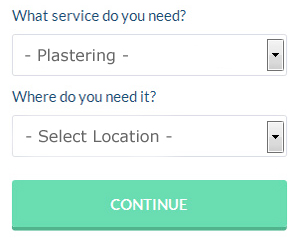Bristol Plasterers: When you're carrying out home improvements or renovations on your property in Bristol it's almost guaranteed that you'll either have to get some affected plaster walls repaired or some fresh plaster put onto to a new wall. Plastering is a skillful occupation and even though you are perhaps fairly versatile at DIY, it isn't the kind of project that you ought to attempt yourself, unless you are extremely confident in your capabilities. This especially applies if there is a ceiling that needs plastering, as you will most likely get your house and yourself in quite a mess if you should attempt it. You would be sensible to bring in an expert plasterer to do this type of work, and although you should have no difficulty finding a plasterer in Bristol, finding one who has a time slot to accommodate your project could be somewhat more difficult. Plasterers, as with many tradespeople, are likely to be very busy, so if it's possible try to book someone in at least a few weeks or months before.
There aren't all that many home improvement projects which do not demand at least a bit of plastering. It might be fitting coving or cornices before decorating, plaster skimming dry lining, plaster repair to get ready for tiling or plastering over artex. Don't however imagine that the above are the only plastering, screeding and rendering jobs which may be needed, as there are certainly many more possibilities.
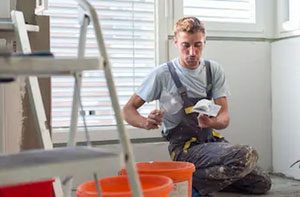
Employing a plasterer who knows what they're up to is the most critical detail, so ask potential Bristol plasterers to show you a portfolio of their previous projects. For this type of work, you don't want to be employing "cowboys". Shoddy plastering can cause big complications down the line, and it may not even be obvious until you start the decorating.
Any defects will become glaringly obvious as soon as some emulsion starts going on to your newly plastered walls and ceilings. Uneven surfaces become even more highlighted in bright daylight. When you've got the choice between decent plasterers in Bristol and poor ones, always choose a decent one.
The primary attribute of plastered surfaces is that they be flat and smooth, forming a level base for additional materials to be put onto them. It's very simple to fill and smooth off any small blemishes and cracking, but it's tricky to disguise inherently irregular surfaces. Issues with the installation of kitchen units, fitting skirting boards, any area of tiling (kitchens or bathrooms) and the painting and wallpapering of ceilings and walls, can result from a poorly plastered area.
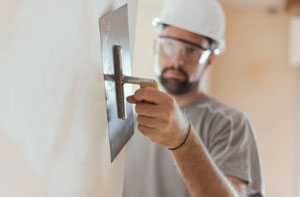
Professional Bristol plasterers have reputations to maintain and will invariably seek to get a polished finish right from the trowel, where feasible. Sanding (particularly with machine tools) shouldn't ever be necessary on newly plastered walls and ceilings, a quick rub down with ultra-fine sandpaper is all that should be needed. If extensive sanding is taking place, the plastering was not done properly to start with. The alarm bells should certainly be ringing out if electric sanders are being utilized with any frequency.
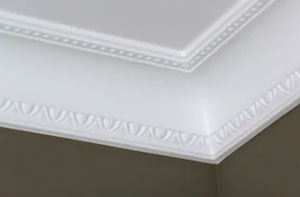
Whilst you might call on the services of a plasterer for many different tasks, a typical reason nowadays is for plastering over old artex ceilings. At the height of fashion during the 70's and 80's, artex is out of favour in Bristol properties today. To get all your dated artex ceilings looking sleek and modern again, most Bristol plasterers will gladly plaster over them. If however, you would like to bring a bit of that 70's style back into your home, most plasterers will be just as glad to coat your ceiling with artex as they are to cover it up.
DIY Plastering Bristol: Although when you've got plastering work that needs to be done in your home or business premises in Bristol, it's preferable to bring in a professional plasterer to do the project, it's still quite possible to have a shot yourself, if you have the confidence and are good at DIY. Choosing a wall that already has an inaccurately plastered finish is a great idea for starters, so that your amateurish plastering amateurish efforts can hardly make it any worse. An out-of-sight area or a spare bedroom would be an ideal place to begin. This will allow you to test out your newly acquired skills and will be a lot less stressful than taking on a wall that everyone will regularly see. You'll very likely make a bit of a mess of plastering on the first couple of attempts, but don't worry because it's quite possible to plaster a wall surface as many times as you like.

If you're interested in some tips and hints to set you on the right path, you might consider watching some You Tube tutorials. Or, if you're really keen to learn plastering you could even look at taking a course at a local college or school. Practice makes perfect as the saying goes, and plastering is no exception - the more you practice the better and more confident you become. Sticking to the time-tested techniques is generally best when plastering, although through experimentation you might even develop your own solutions for getting a flawless finish. The more you do it the more confident you'll become, and when all is said and done - plastering is mainly about self-confidence. Once you have mastered the art to a standard you are satisfied with, you'll be able to progress to plastering the more important walls of your house. You've still got the option of hiring a reputable Bristol plasterer if you mess it up.
It isn't just in Bristol that you can obtain plastering companies - neighbouring places like: Totterdown, Lawrence Hill, Keynsham, St Philips, Broadmead, Temple Meads, College Green, Kingswood, Downend, Cotham, Bedminster, Redcliffe, St Andrews, Clifton, Barton Hill, Patchway, Hotwells can also be covered. A couple of hints which imply that a plastering company operates in Bristol area is if they have the postcode BS1 and the telephone dialling code 0117. This is obviously one thing you can confirm if you prefer to hire local plastering. Bristol home and business owners can enjoy the benefits of these plastering services.
Polished Plastering Bristol
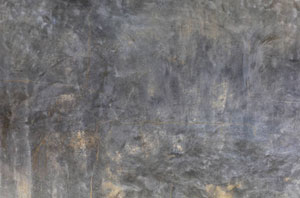
Polished plaster is a common name for the finished surface of several plasters and for the description of contemporary sorts of conventional Italian plasterered finishes. Covering anything from rugged looking textured plasters to very highly polished Marmorino, Venetian and Lucidato plasters, the name "Polished Plaster" actually covers an array of prime quality plaster finishes. The technique is largely used on internal ceilings and walls, to supply a finished surface that appears like polished marble, limestone or travertine. Polished plaster offers natural variations of shade giving a feeling of depth while still smooth when touched. Additionally, it is a possibility to mix these sorts of plasters to generate distinctive bespoke finishes. By the use of natural or synthetic colourants, pleasing colours or tints can be applied to the plaster finish. This is particularly valuable when trying to achieve "marbled" effects or produce colours and designs that do not exist in nature. To get more information about polished plaster, have a look at the Wikipedia "polished plaster" page.
Screeding Bristol
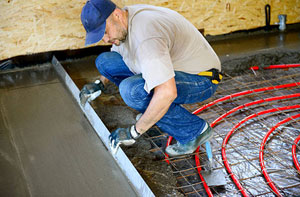
Several plasterers in UK also offer screeding services, where a new level floor surface is formed by using a cement and sand mix. Screeding is generally put on over a concrete sub-floor to be used as a finished hardwearing floor surface, to cover underfloor heating pipes or to take on the final floor finish. Increased durability, quality and finish is the result of a correctly laid screed floor. Screed is only mixed by hand where relatively small areas of floor are involved. For bigger projects, a decent screed pump needs to be used to ensure an even and smooth mix of sand, cement and water, which can then be pumped directly to the desired location.
Decorative Plastering
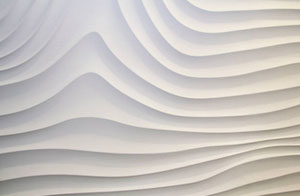
Plastering is by no means a modern innovation and was being carried out by the ancient Romans, Greeks and Egyptians countless years ago. Mixtures of clay and mud were used in those long gone days. In 13th Century London, a form of plaster was put on the internal walls of shops and buildings to restrict the spread of fires. Through the Victorian and Georgian eras huge steps occurred to create highly decorative features and mouldings out of plaster of Paris, as you'll observe when you visit buildings of this period. Eye-popping decorative plaster effects by the use of modern materials combined with age-old techniques can be created by skilled plasterers today. This calls for the application of coving, niches, dentils, corbels, cornice finishes, brackets and ceiling roses. (Tags: Plastering Effects Bristol, Decorative Plastering Bristol, Plastering Finishes Bristol, Plaster Mouldings Bristol)
Rendering
Enhancing your property's exterior is easy with rendering, a method that blends style with practicality. A protective coating, typically composed of lime, cement, or acrylic, is applied to the external walls to guard against weather-related damage from rain, frost, or wind. Alongside its protective qualities, rendering allows you to refresh your home's look with a choice of finishes and colours. It's a versatile solution, perfect for both older properties in need of an update and newer homes seeking added durability and style.
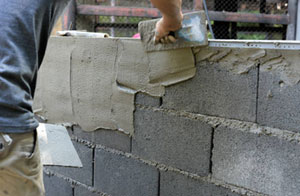
Beyond its aesthetic advantages, rendering can also improve your home's overall performance. Many modern rendering systems include insulating properties that help keep the interior warmer in winter and cooler in summer. This additional insulation not only boosts comfort but can also lower energy bills over time. Additionally, rendering seals cracks and imperfections in the walls, reducing the risk of dampness or water ingress that could lead to costly repairs. It's a long-lasting solution that preserves and protects your property in Bristol.
If you want the best results, seeking professional advice is definitely worth it to find the most suitable materials and methods for your property. Experts can ensure that the application is done accurately, which results in a polished finish that stands the test of time. They'll also help you understand the maintenance requirements, so your rendered walls stay in great condition for years to come. Whether it's selecting the ideal texture and colour or choosing systems that work well with your local climate, their expertise is essential. With the right strategy, rendering can really transform your home's exterior in Bristol, adding insulation, protection, and value at the same time. (Tags: Rendering Bristol).
Artex Bristol
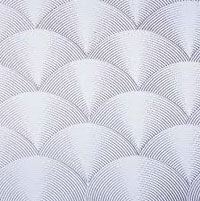
Especially popular throughout the nineteen seventies and eighties, artex has long been an effective way to add an ornamental finish to a plastered ceiling, as well as to cover over cracks and uneven surfaces. It isn't quite so easy to locate a plasterer that will undertake artexing these days, whereas years ago you would find quite a lot of tradespeople who did nothing but artexing and artex repairs. With designs and styles like circles, bark, stippled, medusa, swirl, pairs, broken leather, hook & line, scroll, criss-cross or basket & flowers, there seemed to be something for everyone. Whatever your taste was, you'd find a design of artex to fit. It's obviously still perfectly possible to get any one of these artex ceiling designs done today, you'll just have to locate a tradesman (a plasterer and not a handyman) willing to do it. Having said all that, it ought to be pointed out that artex is rather challenging to repair or patch up and it is probably for this reason that its use declined.
Skimming Bristol
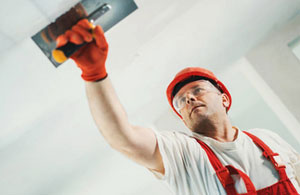
Re-skimming or skimming is a thin layer of plaster spread over artex, old damaged plasterwork or plasterboard. Out of all the tasks which plasterers are asked to carry out, this is one of the most commonplace. Many home renovation projects involve new plasterboarded walls or cause damage to existing plastered surfaces. A professional will make those flawed surfaces in perfect condition for painting or papering by the application of a sleek, glass-like finish. You have to leave this for several days to dry out properly before you can do any decorating. A perfectly flat and fault-free surface should be the end result.
Acoustic Plastering Bristol
Plagued by unwanted echoes or having difficulty following conversations in a busy environment? Acoustic plastering might be the answer you're seeking. This ground-breaking technique tackles sound problems by using specialist plaster that absorbs sound waves. Unlike ordinary plaster, acoustic plaster incorporates fibres or aggregates that disrupt sound energy, reducing echo and creating a more pleasant listening environment.
Modern acoustic plaster systems are a far cry from their historical counterparts, which often contained hazardous asbestos. Today's solutions are completely safe and typically comprise two layers. The first layer, usually made from mineral wool or non-combustible glass granules, acts as the sound absorption powerhouse. A finishing layer, or two depending on the desired strength, is then applied on top. This layer provides a smooth, seamless aesthetic finish and further aids in sound reduction.
Acoustic plastering offers a significant advantage over conventional soundproofing methods: a seamless appearance. Unlike acoustic panels with visible grids or seams, acoustic plaster creates an uninterrupted, elegant finish that integrates beautifully into any space's design. This makes it a popular choice for applications where aesthetics are just as important as sound control. (5265 - Acoustic Plastering Bristol)
Plastering Tasks Bristol

Bristol plastering specialists will likely help you with lime plastering, plastering over artex in Bristol, curved wall plastering in Bristol, polished plastering Bristol, floor levelling Bristol, flood and fire renovations, ceiling crack repairs, bonding Bristol, stucco plastering, the rendering of brickwork, rendering with sand and cement, repairing holes in walls and ceilings, screeding before tiling, false ceilings Bristol, artex patching, fireplace niches, magnetic plastering in Bristol, asbestos testing, external plastering, insurance work, drywall edging, ceiling replacements in Bristol, blown plaster, skimming over drywall, home insulation in Bristol, ceramic tiling, DPC injection Bristol, ceiling overboarding, skimming plaster walls, Venetian polish plastering in Bristol, concrete plastering in Bristol, plaster coving Bristol, dragged plaster, hard walling, plastering quotations and other plastering work in Bristol, UK. Listed are just a handful of the tasks that are accomplished by local plasterers. Bristol providers will keep you informed about their whole range of services.
Plasterers Near Bristol
Also find: Barton Hill plasterers, Clifton plasterers, Temple Meads plasterers, Redcliffe plasterers, Kingswood plasterers, St Philips plasterers, Broadmead plasterers, Patchway plasterers, St Andrews plasterers, Lawrence Hill plasterers, Cotham plasterers, Hotwells plasterers, Bedminster plasterers, College Green plasterers, Totterdown plasterers, Keynsham plasterers, Downend plasterers and more. Practically all of these locations are catered for by local plastering companies. Property owners in the region can get plastering quotations by simply clicking here.
Bristol Plastering Services
- Bristol Plaster Re-Skimming
- Bristol Ceiling Replacements
- Bristol Stud Partitioning
- Bristol Plaster Repairs
- Bristol Plasterer
- Bristol Plaster Patching
- Bristol Soundproofing
- Bristol Plasterers
- Bristol Cornice Installation
- Bristol Plaster Skimming
- Bristol Floor Screeding
- Bristol Plasterboarding
- Bristol Artexing
- Bristol Domestic Plastering
Other Useful Trades in Bristol UK

Naturally, when you're doing home repairs and improvements in Bristol, UK, you'll likely be in need of all sorts of different tradespeople and aside from a plasterer in Bristol, UK, you could also need dry lining in Bristol, carpenters in Bristol, waste removal in Bristol, painters and decorators in Bristol, coving fitters in Bristol, renderers in Bristol, external wall insulation in Bristol, electricians in Bristol, builders in Bristol, artexers in Bristol, domestic cleaners in Bristol, pebble dashers in Bristol, plasterboarders in Bristol, decorative cornicing in Bristol, screeding in Bristol, and other different Bristol tradesmen.
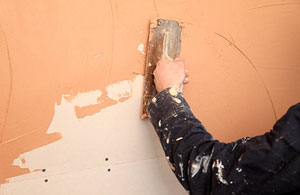 Plasterers Bristol
Plasterers Bristol Plastering Near Bristol
Plastering Near Bristol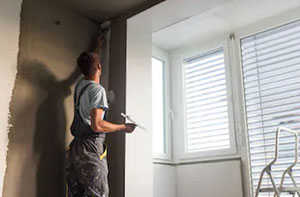 Plasterer Bristol
Plasterer BristolIf you want local Bristol information check here
More: Plastering Contractors, Plastering, Residential Plastering, Plastering Services, Plaster Repairs, Plasterer, Patch Plastering, Rendering, Plastering Repairs, Plaster Repairs, Plastering Firms, Rendering, Plaster Repairs, Plastering Services, Cheap Plasterers, Plastering, Internal Plastering, Plastering Firms, Plastering Contractors, Rendering, Plastering Contractors, Plastering Repairs, Plastering Repair, Plastering Specialists, Plastering Services, Plastering Repairs, Cheap Plastering, Patch Plastering, Plastering, Domestic Plastering, Plaster Repair, Cheap Plasterers, Residential Plastering.
Plastering Jobs Bristol: View plastering jobs in Bristol here: Plastering Jobs Bristol
Plasterers in BS1 area, (dialling code 0117).
Plasterer Bristol - Polished Plaster Bristol - Plastering Bristol - Coving Bristol - Plaster Repairs Bristol - Cheap Plasterer Bristol - Decorative Plastering Bristol - Screeding Bristol - Plasterboarding Bristol




